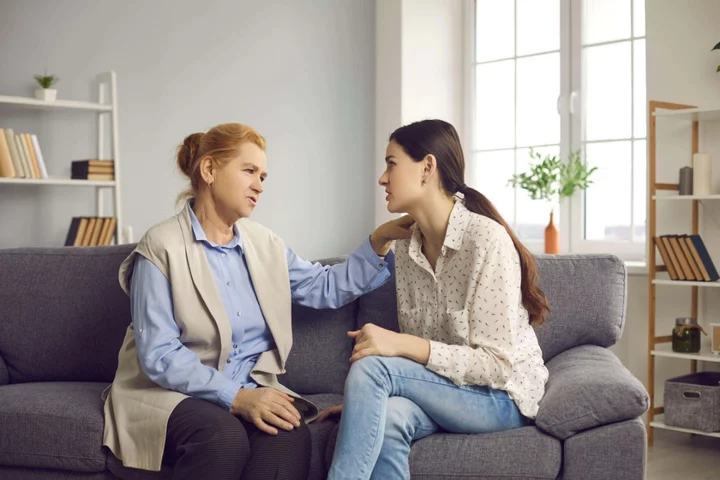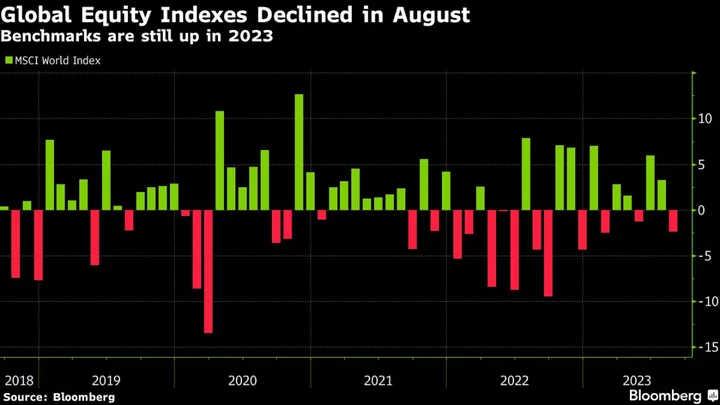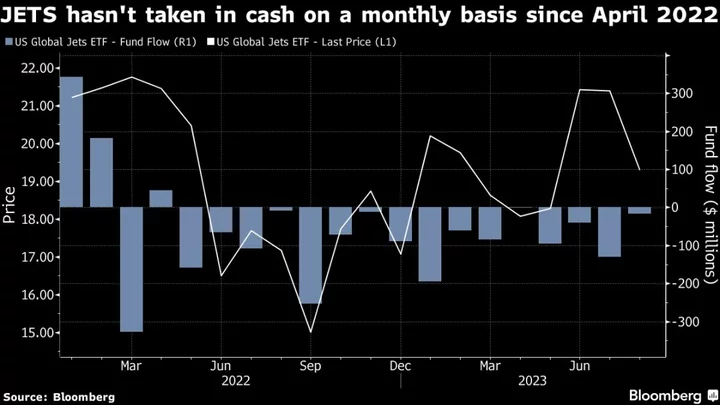
Daily aspirin dose could help prevent diabetes in older people – researchers
Taking 100mg of aspirin every day could lower the risk of people aged 65 and over developing type 2 diabetes, researchers have suggested. Scientists – led by Professor Sophia Zoungas of Monash University’s School of Public Health and Preventive Medicine in Melbourne – said their findings warrant further exploration but do not change the current clinical guidelines on older people taking aspirin. Some 16,209 people were included in the study; 8,086 were given aspirin while 8,123 were given a placebo. All were aged 65 or over and did not suffer from cardiovascular disease, physical disabilities or dementia. Although these new findings are of interest, they do not change the clinical advice about aspirin use in older people at this time Prof Zoungas Over a median follow-up of 4.7 years, researchers found the group given aspirin had a 15% reduction in type 2 diabetes and a slower rate of increase in fasting plasma glucose (FPG) levels. The authors said: “Given the increasing prevalence of type 2 diabetes among older adults, the potential for anti-inflammatory agents like aspirin to prevent type 2 diabetes or improve glucose levels needs further study.” The findings will be presented to delegates at the annual meeting of the European Association for the Study of Diabetes (EASD) in Hamburg in October. However, the study was a follow-up of the ASPREE trial, which was published in 2018. It found taking aspirin led to a 38% increased risk of major haemorrhage in older adults without any reduction in incidence of cardiovascular disease. Prof Zoungas said her team’s research does “not change clinical advice” around older people taking aspirin. According to the NHS, a low-dose of aspirin – 75mg – each day can help to prevent heart attacks and strokes in people who are at high risk of them, but should only be taken if your doctor recommends it. Prof Zoungas added: “The earlier published trial findings from ASPREE in 2018 showed aspirin did not prolong healthy independent living, but was associated with a significantly increased risk of bleeding, primarily in the gastrointestinal tract. “Major prescribing guidelines now recommend older adults take daily aspirin only when there is a medical reason to do so, such as after a heart attack. “Although these new findings are of interest, they do not change the clinical advice about aspirin use in older people at this time.” In June, a paper published in The Lancet Diabetes and Endocrinology journal claimed 1.3 billion people could be living with diabetes by 2050 – more than double the 529 million cases in 2021. Academics described the condition as one of the “biggest public health threats of our time”. However, Dr Faye Riley, research communications manager at Diabetes UK, said the link between aspirin and diabetes prevention “remains unclear”. She added: “With more than 2.4 million people in the UK at high risk of type 2 diabetes, there’s an urgent need to find new and better ways to help people avoid the condition. “While this research found that taking a daily low-dose aspirin was linked to a small decrease in risk of type 2 diabetes in older people, whether aspirin has a role to play in type 2 prevention remains unclear, and this approach may have unwanted side effects. “We know the use of daily aspirin increases risk of potentially serious bleeding in people with diabetes and others, so we advise only taking daily low-dose aspirin if your doctor recommends it and they will discuss exactly what dose is right for you. “We do know the best ways to reduce your risk of type 2 are getting support to lose weight if you need to, eating a healthy, balanced diet and doing more physical activity. “ Read More Charity boss speaks out over ‘traumatic’ encounter with royal aide Ukraine war’s heaviest fight rages in east - follow live Secondhand September: The best places to buy pre-loved fashion online What are gynaecological cancers and how can you prevent them? Alzheimer’s: How and when to talk to someone about their memory loss
1970-01-01 08:00

Secondhand September: The best places to buy pre-loved fashion online
This month marks the start of the autumn/winter fashion season and it’s also Second Hand September, Oxfam’s annual event encouraging consumers to avoid buying new items for 30 days. You don’t have to go rummaging through charity shops or car boot sales if you want to refresh your wardrobe for autumn or stock up on basics – there’s now a swathe of amazing sites that let you shop for pre-loved clothes from the comfort of your own home. By saying no to new, you can help prevent good quality garments from going to landfill and save money when you bag a bargain for a fraction of what it would have cost originally – and you’re spoilt for choice when it comes to pre-owned clothes shopping online. From resale platforms where users list their unwanted or unworn garments to vintage and designer-focused e-commerce retailers, here’s our pick of the best secondhand fashion sites… Vinted A peer-to-peer marketplace with a community of 75 million across the world, Vinted lets you buy direct from other users. The site has become so popular you might find the sheer array of products overwhelming at first. The key is to filter as much as possible. Try narrowing search results down by ticking the brands you usually buy on the high street (and avoiding the ones you don’t like), then sorting by price to find the cheapest options. Depop Hugely popular with Gen Z fashion obsessives, Depop is the go-to site for current trends, upcycled pieces and the latest vintage finds. Listings show how long ago an item was uploaded, so if it’s been on the site for a while you can try offering a lower price to the seller. Facebook Marketplace Connecting buyers and sellers in the same area, Facebook Marketplace is often the go-to site for people looking to clear out an overstuffed wardrobe or get rid of clothes when moving house. You just need a Facebook account to log in. Payment is completed via Messenger and you can arrange local pick-up or delivery (if the user offers that option). As well as individual items, look out for sellers offloading bundles of clothing in one size. eBay Having partnered with Love Island and appointed two former islanders as pre-loved ambassadors, online shopping behemoth eBay wants to be known as a leader in sustainable fashion. To simplify secondhand clothes shopping, the site now has a dedicated pre-loved fashion hub, where you can find items grouped by brand, trend, season, occasion, and more. ASOS Marketplace Focusing on the latest looks, ASOS Marketplace hosts independent brands and vintage boutiques – so make sure to tick the ‘vintage’ option under ‘condition’ when browsing for secondhand items. Charity shop sites While it’s great to support your local charity shops, you can also find some brilliant bargains and hand-picked premium pieces on charities’ online stores. Oxfam and Shelter have dedicated sites, while British Heart Foundation and British Red Cross have eBay shops. Vintage retailers If you’re lacking any decent vintage boutiques near you, don’t worry, because some of the biggest names in the game have online stores packed with gems from days gone by. Check out well-known brands like Beyond Retro and Rokit for retro threads dating as far back as the 1940s. Designer resale sites In the last few years, a crop of slick websites has popped up to serve shoppers hunting for secondhand luxury fashion. Head to sites such as Vestiaire Collective, Sellier, Lampoo and The Cirkel for designer clothes and accessories from brands like Burberry, Chanel, Gucci, Fendi and many more. Read More Charity boss speaks out over ‘traumatic’ encounter with royal aide Ukraine war’s heaviest fight rages in east - follow live What are gynaecological cancers and how can you prevent them? Alzheimer’s: How and when to talk to someone about their memory loss As Simon Cowell shares positive therapy experience, how can it help even if you aren’t in crisis?
1970-01-01 08:00

What are gynaecological cancers and how can you prevent them?
September is Gynaecological Cancer Awareness Month, which sees charities joining together to put the spotlight on the range of cancers that start in the female reproductive system. There are five main types of gynaecological cancer – cervical, ovarian, vaginal, vulvar and uterine (or womb) – plus fallopian tube cancer, although this is very rare. Around 22,000 women are diagnosed with a gynaecological cancer each year in the UK, of which 21 die every day, according to charity The Eve Appeal. However, some of these cases are preventable, and with the right treatment, many gynaecological cancers have high survival rates. Here, experts answer some key questions about the prevention and treatment of gynaecological cancers. What are the symptoms of gynaecological cancers? “The symptoms of gynaecological cancers can vary,” says gynaecologist Oudai Ali from New Victoria Hospital. “But some common signs to watch out for include abnormal vaginal bleeding, pelvic pain or discomfort, unusual vaginal discharge, new vulval lump or ulcer and changes in urinary or bowel habits.” If you’ve noticed any of these signs, follow the ‘if in doubt, check it out’ rule, Ali says: “It’s crucial for patients to consult their GP if they experience any of these symptoms, as early detection can significantly improve treatment outcomes.” Severe ongoing bloating and feeling full very quickly, unintentional weight loss and fatigue are also indications it’s a good idea to get things checked out. Are regular screenings important for gynaecological health? Routine screening programmes are not available for all types of gynaecological cancer. However, where they are available – such as cervical smear tests – attending screenings can be life-saving. “Regular screenings, such as smear tests and HPV (human papillomavirus) tests, are vital for the early detection of cervical cancer and can prevent it at its pre-cancer stage,” says Ali. “Additionally, it’s important for individuals to discuss family history and risk factors with their healthcare provider to determine which screenings are appropriate.” Research shows that cervical cancer risks are higher for people who don’t attend screenings. “Cervical cancer risk is estimated to be 1.7% among women in the UK who don’t attend screenings,” says Mr Andrew Pooley, consultant gynaecologist at New Victoria Hospital. “Other risk factors are related to a higher exposure to HPV, the use of the contraceptive pill for over 10 years, or a weak immune system.” Ali adds: “The age to start screening can vary depending on the type of cancer and a patient’s individual risk factors. Pap smears typically start around age 25.” For cancers where there isn’t a national screening programme, your GP can refer you for blood tests and scans if you are concerned about symptoms. Can gynaecological cancers be prevented? While not all gynaecological cancers can be prevented, there are steps you can take that in some cases may help reduce your risk. “Maintaining a healthy lifestyle, including a balanced diet, regular exercise, and avoiding tobacco, can help,” Ali says. “The HPV vaccine is a powerful tool in preventing certain gynaecological cancers. It protects against several strains of HPV that can lead to cervical, vaginal, and vulvar cancers. It’s recommended for both boys and girls, ideally before they become sexually active, to provide the greatest protection.” Some gynaecological cancers can have a hereditary component, too. “A family history of bowel, breast or ovarian cancer may increase the risk,” Ali explains, which is why it’s important to discuss family medical history at screenings. “They can assess the risk accurately and recommend appropriate screenings or genetic testing if necessary.” This said, anyone can potentially get cancer, so getting any symptoms checked as soon as possible is always key. What are the available treatment options for gynaecological cancers? Treatment options vary depending on the type and stage (from one to four) of cancer. “They may include surgery, chemotherapy, radiation therapy, hormone therapy, targeted therapy, or a combination of these treatments,” says Ali. “The choice of treatment is personalised to each patient’s specific diagnosis and medical history.” Survival rates for the main five gynaecological cancers when diagnosed at stage one range from 75%-95% according to Cancer Research, which further highlights the importance of early detection. New Victoria Hospital has launched its Community Champion Campaign, which will offer free scans and treatment to people across the UK for the sum of £125,000. To apply visit: newvictoria.co.uk/communitychampioninitiative. Read More Charity boss speaks out over ‘traumatic’ encounter with royal aide Ukraine war’s heaviest fight rages in east - follow live Alzheimer’s: How and when to talk to someone about their memory loss As Simon Cowell shares positive therapy experience, how can it help even if you aren’t in crisis? Project launched to bust myth that cancer is a ‘white person’s disease’
1970-01-01 08:00

Macau Casino Rebound Shows Travel Is Bright Spot Amid China’s Woes
Macau’s casino recovery is sustaining momentum, with gaming revenue in August rising 686% from a year earlier to
1970-01-01 08:00

Alzheimer’s: How and when to talk to someone about their memory loss
You may have noticed someone close to you changing – perhaps they are more forgetful, not quite themselves. After a quick search online or a chat with family members or friends, you may be left thinking they’re developing Alzheimer’s. But how do you approach a conversation about dementia when it’s such an emotive topic? “As we get older, we’re all prone to becoming more forgetful, taking longer to remember certain things, getting distracted more easily or struggling to perform several tasks at once,” says head of knowledge at Alzheimer’s Society, Dr Tim Beanland. “These are common signs of getting older, but there is still a very sharp distinction between normal ageing and dementia.” Symptoms that may worry you “Symptoms of dementia gradually get worse over time,” Beanland explains, “and can appear as memory loss, confusion, needing help with everyday tasks, problems with language and understanding, or changes in behaviour. Although symptoms typically occur in people aged 65 and over, they can occasionally appear as early as twenty years sooner.” You may be scared Seeing these types of changes is understandably worrying – it’s a reminder of the age and health of those around us. “Noticing what might be dementia symptoms in a loved one can be distressing and confusing, particularly for people who have never dealt with dementia before,” Beanland says. “Both parties may feel nervous or worried about how to address the topic of potential dementia symptoms, and may not know where to begin.” Be open Beanland suggests asking questions like, ‘How are you feeling lately, physically and emotionally?’ Or ‘Do you have any health worries you’d like to talk about?’ It’s important to remember when approaching someone who may be experiencing dementia symptoms to do so gently, calmly and in a reassuring and supportive manner. “People experiencing dementia symptoms may find it difficult, or take a bit longer, to find the words they wish to say,” notes Beanland. “So, allowing them extra time, or giving them gentle prompts, can help them find the words they’re looking for, without highlighting they’ve forgotten something.” Do your research Dementia or Alzheimer’s may not be the only answer. It’s important to remember there are other conditions which can cause similar symptoms to dementia, such as thyroid problems or urinary tract infections, says Beanland. “Try to focus on helping the person see their GP, to find out what is causing the problems they are having. It’s also important to understand that, whether you are experiencing dementia symptoms personally or you’re a concerned loved one, you do not have to face dementia alone. There is support out there for you. “I’d encourage anyone worried about their own or a loved one’s memory to use Alzheimer’s Society’s symptoms checklist. It will help to unlock the vital care and support you need, and give you the precious time needed with your family to plan for the future.” Read More Charity boss speaks out over ‘traumatic’ encounter with royal aide Ukraine war’s heaviest fight rages in east - follow live As Simon Cowell shares positive therapy experience, how can it help even if you aren’t in crisis? Project launched to bust myth that cancer is a ‘white person’s disease’ 10 slick ways to kit out your student digs
1970-01-01 08:00

Spam Call Filter Firm Is Rare Beneficiary of Fukushima Furor
China’s fury over Tokyo’s decision to discharge treated wastewater from the Fukushima nuclear plant is producing a rare
1970-01-01 08:00

Hong Kong Shuts Stock Market, Schools as Super Typhoon Nears
Hong Kong is bracing for what may be the strongest storm to hit the city in at least
1970-01-01 08:00

Asia Stocks Set for Mixed Open After August Tumble: Markets Wrap
Stocks in Asia were set for a mixed start to September after a mooted session on Wall Street
1970-01-01 08:00

Food ads are in the crosshairs as Burger King, others face lawsuits for false advertising
Food ads have long made their subjects look bigger, juicier and crispier than they are in real life
1970-01-01 08:00

10 Facts About the Portuguese Man O’ War
The Portuguese Man O' War might look like a bloated jellyfish, but it’s actually a strange amalgamation of tiny life forms.
1970-01-01 08:00

Fanatics Hopes Merchandise Giveaway Will Boost Sports-Betting Effort
Fanatics Inc., the online sports-apparel giant, is offering customers up to $150 in merchandise credit if they sign
1970-01-01 08:00

Airline Stocks Come Down to Earth as Earnings Outlook Darkens
Summer’s ending with a thud for US airline stocks, as a litany of problems from rising oil costs
1970-01-01 08:00
